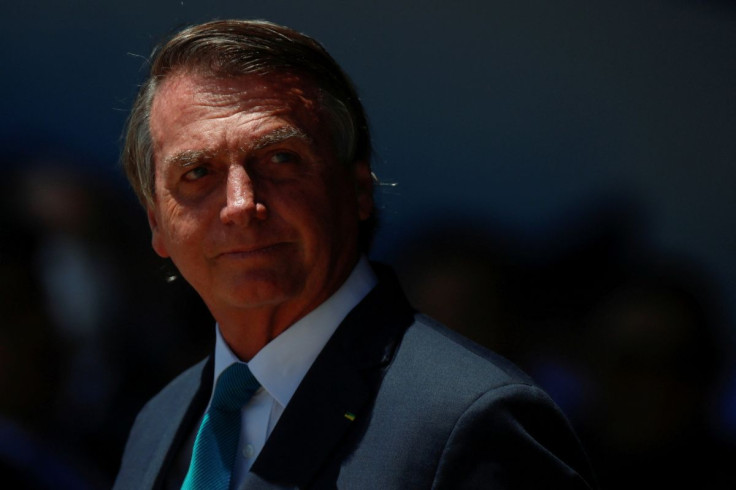Brazil's Moro Says He Will Drop Out Of Presidential Race

Brazil's graft-fighting ex-judge Sergio Moro on Thursday dropped his presidential bid, narrowing the field in what is shaping up to be a highly polarized October election between far-right President Jair Bolsonaro and his leftist rival Luiz Inacio Lula da Silva.
In a day of political upheaval, with Brazil's campaign season gathering momentum, Moro left his Podemos party to join the right-wing Union Brazil.
"To enter the new party, I give up, at this moment, the presidential pre-candidacy and I will be a soldier of democracy to recover the dream of a better Brazil," Moro, who has been polling third, said in a statement posted to his Instagram.
Moro's exit will raise questions about where the roughly 8% of voters backing him will place their support.
Moro made his name leading the massive 'Car Wash' corruption probe that jailed some of Brazil's political and business elite - including Lula. He then joined Bolsonaro's government as justice minister, before quitting after falling out with the president.
Moro's reputation suffered from the fight with Bolsonaro, as well as the Supreme Court's decision to throw out Lula's graft convictions for prosecutorial bias.
Those episodes turned Moro into a divisive figure in Brazil, reviled by both the left and right. Although he retains admiration from centrists and anti-corruption advocates, his presidential campaign had struggled.
So, too, has Bolsonaro's.
The former army captain has lost public support over his handling of the COVID-19 pandemic, and is facing a tough re-election fight. Lula would get 43% of first-round votes, compared with 26% for Bolsonaro, pollster Datafolha reported last week.
POLITICAL UPHEAVAL
The questions on Moro's future came on a day of other big changes to Brazil's political landscape.
Bolsonaro on Thursday relieved 10 ministers from duty in a formality that will pave the way for them to run in the elections for seats in Congress and governorships and possibly bolster his campaign.
The outgoing ministers include high profile names such as Agriculture Minister Tereza Cristina Dias, Infrastructure Minister Tarcisio Freitas and Defense Minister Walter Braga Netto, who is widely expected to run as Bolsonaro's vice president.
Current Vice President Hamilton Mourao is planning to run for a Senate seat.
Bolsonaro is betting the ex-ministers can drum up regional support and revitalize his campaign, which faces headwinds from high inflation, especially for fuel and food.
Their departures are part of a larger game of musical chairs in Brazil. Many of the country's leading political figures are obliged by electoral law to make crucial decisions now about their own electoral aspirations in October.
© Copyright Thomson Reuters 2024. All rights reserved.





















